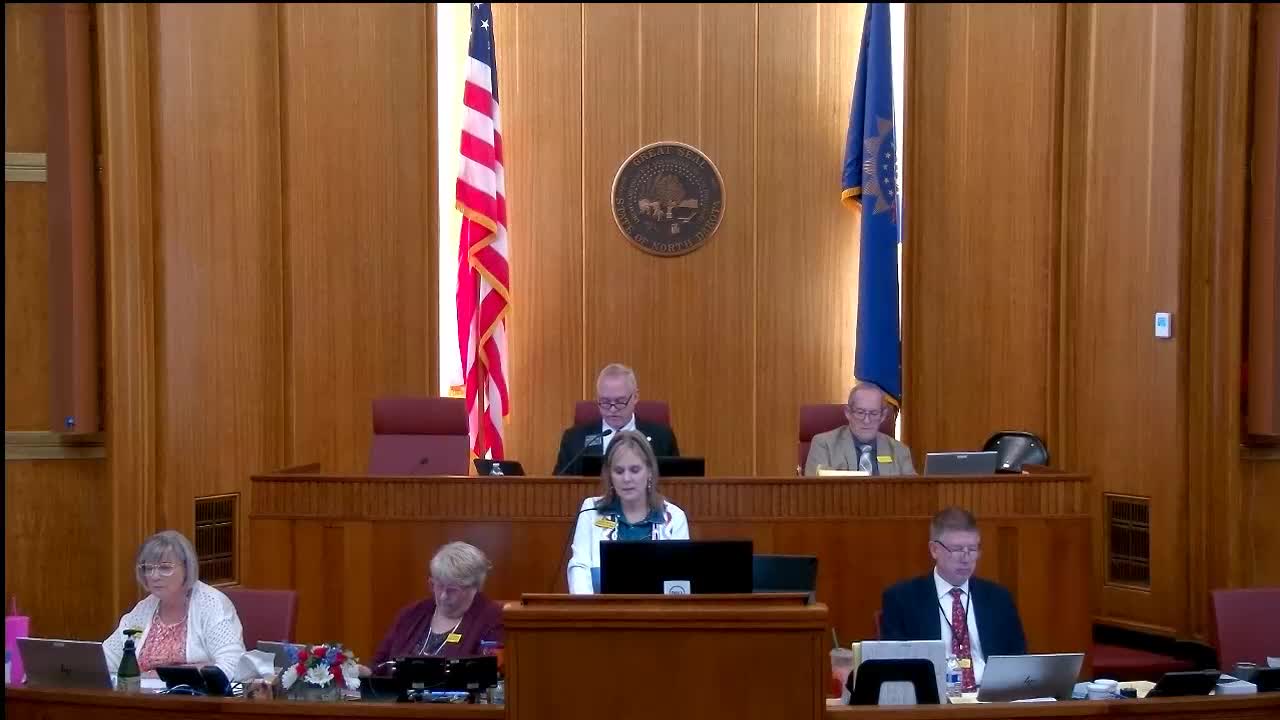Senate approves limits and disclosures for paid veteran‑benefits helpers; bill aims to curb predatory fees
Get AI-powered insights, summaries, and transcripts
Subscribe
Summary
Engrossed House Bill 11‑69 passed the Senate 42‑5, adding written‑agreement, disclosure and fee limits for non‑VA‑accredited entities that assist veterans with benefit claims while preserving veterans’ option to choose paid services.
Bismarck — The North Dakota Senate voted 42‑5 on Monday to pass Engrossed House Bill 11‑69, a bill that aims to protect veterans from predatory practices by private entities that charge for help preparing Veterans Affairs compensation claims.
Senator Meerdal, speaking for the bill, said the measure preserves veterans’ freedom to choose paid assistance while imposing guardrails: mandatory written agreements describing compensation, prohibitions on excessive fees, limits tying compensation to outcomes, restrictions on the use of veterans’ personal login credentials, and a prohibition on using international call centers to service clients. Meerdal told the chamber there are 75 accredited veteran service officers (VSOs) in North Dakota and roughly 55,000 veterans statewide, framing the bill as filling gaps where VSOs cannot serve every veteran promptly.
Floor debate was robust. Opponents — including retired VSOs and senators representing tribal areas — argued the bill could disadvantage low‑income veterans who could not afford paid help and that existing county, tribal and federal VSOs serve veterans effectively. Senator Marsalais, a longtime veteran service officer, urged defeat, saying many veterans rely on free local services that operate with deep commitment and around‑the‑clock availability.
Supporters pushed back, saying unscrupulous for‑profit operators sometimes charge excessive fees and that the bill protects veterans by imposing clear fee limits and disclosure requirements. Senator Deaver summarized that killing the bill would allow unscrupulous operators to continue. Several senators described the bill as giving veterans an informed choice rather than removing free services.
Questions on the floor touched on constitutionality; Meerdal and others said prior court decisions influenced the bill’s drafting to avoid curtailing free commercial speech while still protecting consumers. After extended debate, the final roll call was 42 ayes, 5 nays. The engrossed bill creates a new section to chapter 37‑14 of the North Dakota Century Code, sets penalties for violations, and includes language limiting certain kinds of compensation and practices.
Next steps: With Senate passage, the bill will continue in the legislative process and would apply to non‑accredited paid providers of veteran‑benefits services. Implementation and enforcement were discussed as responsibilities for state oversight and consumer protection mechanisms.
